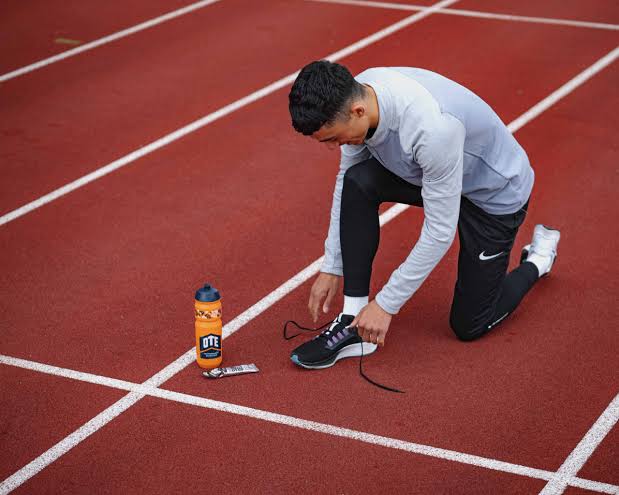Many factors influence athletic performance, each crucial in determining an athlete’s success. Understanding these factors can help you optimize your training and achieve peak performance, whether you are a professional athlete or a fitness enthusiast. From physical conditioning to mental fortitude, each aspect is intertwined in the journey towards athletic excellence.
This blog guide will explore seven key factors significantly impacting athletic performance, providing insights and tips to help elevate your game.
1. Physical Conditioning
Physical conditioning is the cornerstone of athletic performance. It encompasses various elements such as strength, endurance, flexibility, and agility. Effective conditioning programs are tailored to the specific demands of the sport and the individual athlete’s needs. Strength training enhances muscle power and endurance, while cardiovascular exercises improve stamina.
Flexibility routines, including stretching and yoga, help prevent injuries and enhance the range of motion. A well-rounded conditioning program boosts performance and reduces the risk of injuries.
2. Nutrition and Hydration
Nutrition plays a pivotal role in fueling athletic performance. The right balance of macronutrients (carbohydrates, proteins, and fats) and micronutrients (vitamins and minerals) is essential for energy production, muscle recovery, and overall health. Carbohydrates are the primary energy source during high-intensity activities, while proteins aid muscle repair and growth.
Healthy fats are crucial for sustained energy and cell function. Hydration is equally important, as even slight dehydration can impair performance. Athletes should stay hydrated before, during, and after workouts to maintain optimal performance.
3. Mental Preparation and Focus
Mental preparation is as vital as physical training. Athletes must develop mental toughness, concentration, and the ability to handle pressure. Visualisation techniques, mindfulness, and goal-setting can enhance focus and performance. Positive self-talk and stress management strategies are essential for maintaining a competitive edge.
Building mental resilience helps athletes overcome setbacks and stay motivated throughout training and competitions. For those looking to improve their mental and physical performance, Athletic Performance Scottsdale offers tailored programs.
4. Rest and Recovery
Rest and recovery are fundamental aspects of any athletic training regimen. Adequate rest allows the body to repair and strengthen itself between workouts. Sleep is particularly important as it facilitates muscle recovery, hormone regulation, and cognitive function. Better yet, you can elevate athletic performance through cold sleep. Overtraining without sufficient recovery can lead to injuries, burnout, and decreased performance. Incorporating rest days, quality sleep, and recovery techniques such as massage and foam rolling can enhance athletic performance and longevity.
5. Skill Development
Skill development is sport-specific and requires consistent practice and refinement. Whether it’s perfecting a tennis serve, improving soccer dribbling, or enhancing swimming techniques, skill acquisition is crucial. Coaches and trainers play a significant role in identifying areas for improvement and providing constructive feedback.
Drills, repetition, and deliberate practice are essential for honing skills and achieving mastery. Athletes should focus on both fundamental and advanced skills to stay competitive in their sport.
6. Equipment and Technology
The right equipment and technology can significantly impact athletic performance. From advanced footwear and apparel to high-tech gadgets and performance analytics, equipment innovation helps athletes optimise their training and competition. Wearable technology, such as fitness trackers and heart rate monitors, provides valuable data on performance metrics, enabling athletes to adjust their training programs.
Properly fitted equipment, such as helmets, pads, and shoes, enhances safety and performance. Staying updated with the latest technological advancements can give athletes a competitive edge.
7. Environmental Factors
Environmental factors, weather conditions, altitude, and pollution levels, can influence athletic performance. Training and competing in extreme temperatures can affect hydration levels, energy expenditure, and overall performance. High altitudes can impact oxygen availability, requiring acclimatisation for optimal performance.
Pollution levels can affect respiratory function and endurance. Athletes should consider these factors when planning their training and competitions, making necessary adjustments to their routines and strategies.
FAQs
How does hydration impact athletic performance?
Hydration is crucial for maintaining optimal athletic performance. Dehydration can lead to decreased endurance, strength, and cognitive function and increase the risk of heat-related illnesses. Athletes should aim to stay hydrated by drinking water before, during, and after exercise and consider electrolyte-rich drinks for prolonged activities.
What role does mental preparation play in athletic success?
Mental preparation is vital for building focus, resilience, and handling pressure. Techniques such as visualization, mindfulness, and goal-setting can enhance performance. Developing mental toughness helps athletes stay motivated, overcome setbacks, and perform consistently under competitive conditions.
Why is rest and recovery important in athletic training?
Rest and recovery are essential for muscle repair, hormone regulation, and cognitive function. Overtraining without adequate recovery can lead to injuries, burnout, and decreased performance. Incorporating rest days, quality sleep, and recovery techniques such as massage and foam rolling can enhance athletic performance and longevity.
How can environmental factors affect athletic performance?
Environmental factors like weather conditions, altitude, and pollution levels can impact athletic performance. Extreme temperatures can affect hydration and energy levels, while high altitudes influence oxygen availability. Pollution can affect respiratory function and endurance. Athletes should consider these factors in their training and competition plans.
Conclusion
Athletic performance is a multifaceted phenomenon influenced by various physical, mental, and environmental factors. Understanding and optimizing these factors can significantly enhance an athlete’s ability to perform at their best. From physical conditioning and nutrition to mental preparation and recovery, each aspect is critical in achieving peak performance.
Additionally, leveraging the right equipment and technology and accounting for environmental influences can further elevate athletic capabilities. By paying attention to these key factors and continuously refining their approach, athletes can reach new heights in their performance and achieve their competitive goals.





